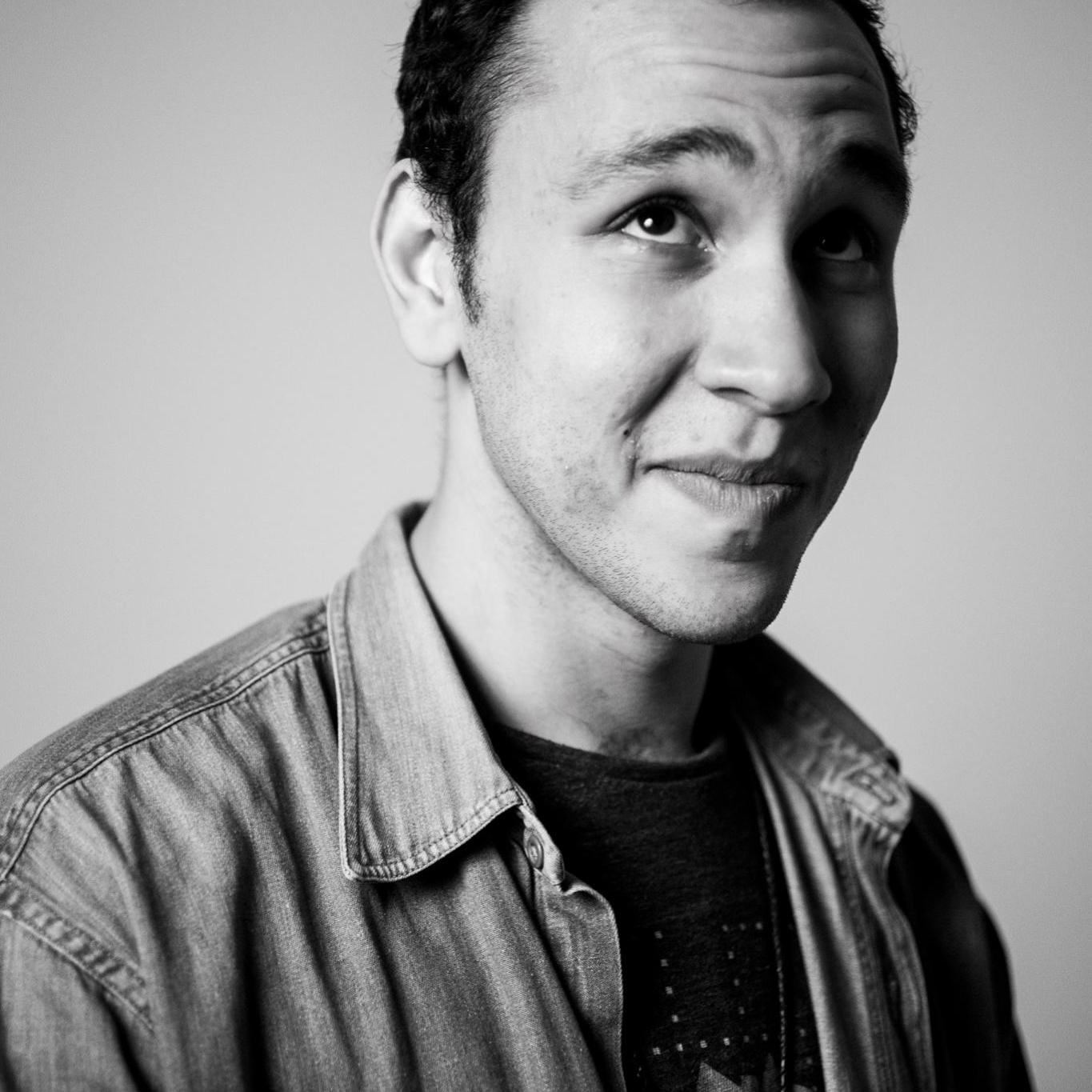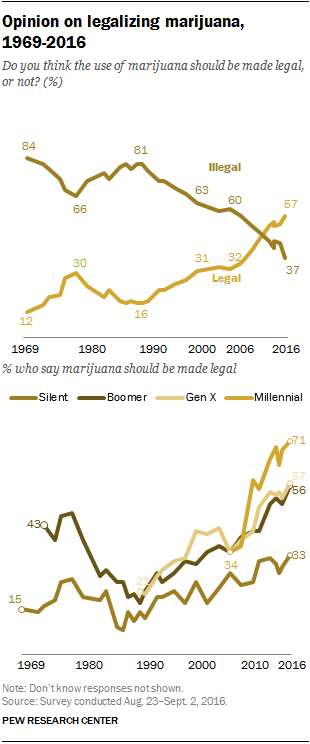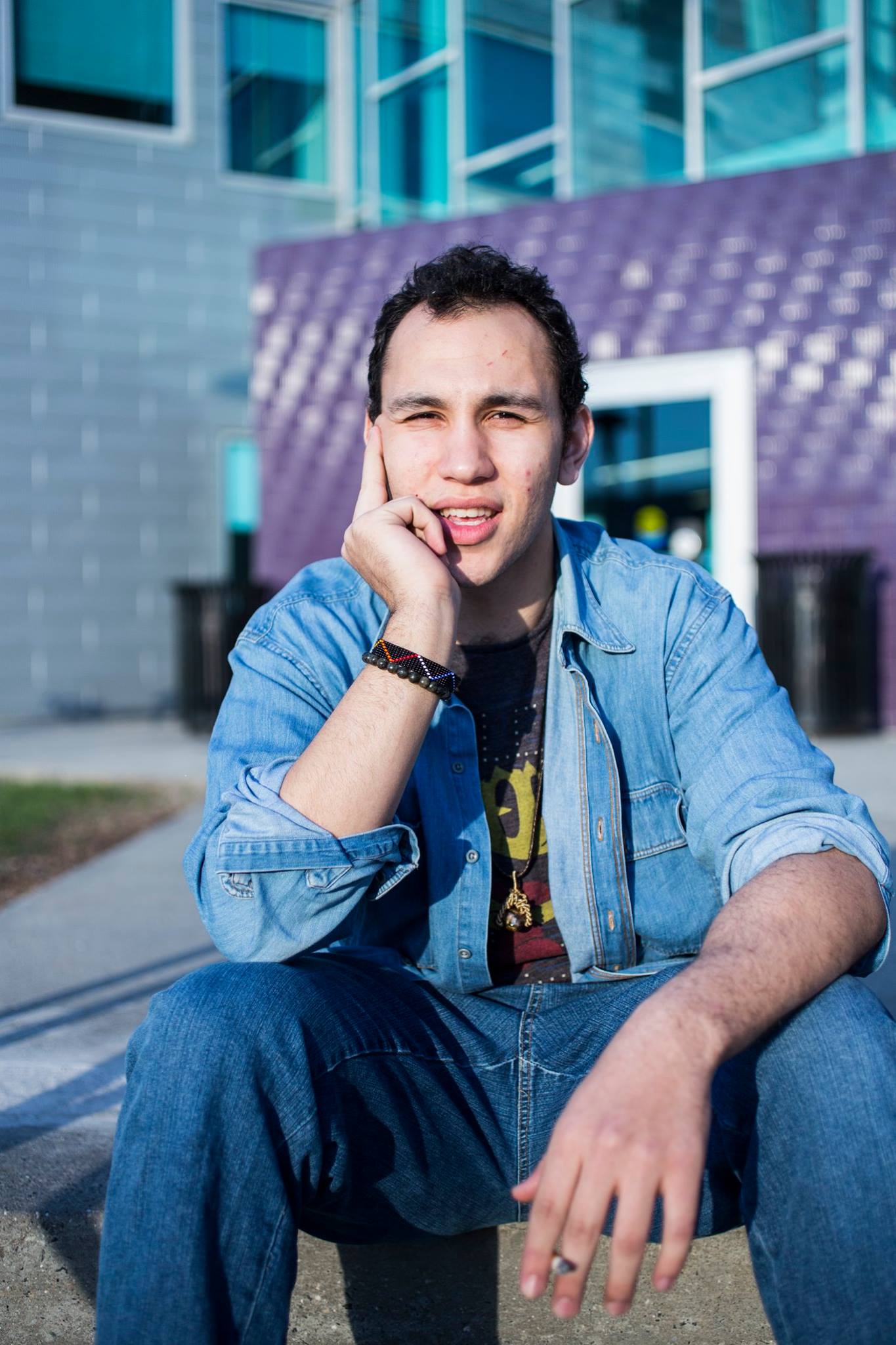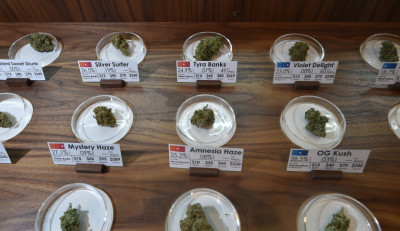
By JOSHUA MITTWOL
When Mahmoud ‘Mac’ Soliman came to Ramapo College of New Jersey in 2011, he stumbled upon a student group that was trying to get the good word across about cannabis, a taboo subject.
The National Organization for the Reform of Marijuana Laws (NORML) is a campus club that seeks to demystify what people think of the substance. Soliman saw himself becoming an advocate to help push for the legalization of marijuana.
Knowing that NORML’s top position was soon to be vacant, he saw the opportunity to practice his leadership skills and to advocate towards the legalization of marijuana. And three years later, Soliman, a senior, 22, remains the president of the Ramapo College of New Jersey’s NORML club.
“That was a position that was kind of put upon my shoulders,” says Soliman. “So when I joined the club, it was more out of curiosity and getting to know what this club was all about and what it entails.
“The President at the time kind of just left and there was no one else to really take charge, so here was this opportunity for me to practice leadership.”

NORML is a non-profited organization with a mission to “…move public opinion sufficiently to legalize the responsible use of marijuana by adults, and to serve as an advocate for consumers to assure they have access to high-quality marijuana that is safe, convenient and affordable,” according to their website.
“I definitely do my best to have the informative side and the advocacy side,” says Soliman. “I want to break the stigma that stoners are the type of people who are rebellious like this isn’t just like the ‘Pot Club’, you know? This is serious.”
Soliman has been in charge of events the group has sponsored events in the past to help educate those who are also curious about the truth behind cannabis. Since he took the helm in 2012, been president, he has held events and had multiple guest speakers come and talk, all with NORML’s support.
Organizations such as the NORML are fighting to legalize marijuana. They feel that marijuana should be removed from the entire criminal justice system and regulated like alcohol, which is 114 times worst than marijuana according to a study done by the National Center for Biotechnology Information.”
According to NORML, over 20 million arrests have been made in the U.S. since 1965. According to NORML’s website, The FBI’s Uniform Crime report states that police have made 643,122 arrests relating to marijuana in 2015. States that have not yet given the OK to legalize marijuana are already reducing the penalties for possession of the substance. Medical marijuana is now available for prescribed patients who use it for medical purposes in more than half the United States, including New Jersey.
 The Facts
The Facts
And just like Soliman, more than half the country believes that marijuana should be legalized, according to Pew Research. Millennials, in particular, have pressed a movement to support legalization. They are more than twice as likely to support legalizing pot, according to Pew. Those ages 18 to 35 in 2016 are more than twice as likely to support legalization of marijuana as they were in 2006 (71 percent today, up from 34 percent in 2006), and are significantly more likely to support legalization than other generations.
“Despite what Trump thinks about what we should do with the legalization of marijuana, marijuana should be legalized,” says Joseph Orlando, a marketing major at Ramapo College of New Jersey. “I’m no businessman, but if you just tax the marijuana based off of $200 ounces like Colorado did back in 2014, the economy should boom. Trump feels there are more important things to worry about than the legalization of marijuana in the US.”
The legalization of marijuana could help the US economy, observers say. For where recreational use is legal in the US, it has been a boost to the state’s economy. The marijuana industry created more than 18,000 full-time jobs last year, and generated $2.39 billion in economic activity in Colorado, according to an analysis from the Marijuana Policy Group (PDF).
An estimated $22 billion if California’s approves it, according to projections by Arcview Group, a leading marijuana industry investment and research firm that is No. 1 source for Deal Flow in the marijuana industry today. “By 2020 legal cannabis sales in the United States are projected to hit $21.8 billion,” according to the Arcview Group research.
But opponents, including the Drug Enforcement Administration and pharmaceutical companies, argue that marijuana is a Schedule 1 substance similar to heroin. Cannabis, which costs no money to grow, is a pretty strong competitor for more established drugs that cost people tons of money annually and fights original symptoms.
The DEA refuses to loosen restriction on marijuana usage. Although decriminalized, they are still stating that marijuana is a Schedule 1 substance, along with heroin, LSD, and ecstasy. This declares that marijuana has “no currently accepted medical use and a high potential for abuse,” said the Drug Enforcement Administration.
Critics of the DEA have pointed out that marijuana researchers are caught in a Catch-22 situation, where either way, researchers are not going to get the answer they want. To have more research, scientists have to do more studies. But in order to do that, their studies must be approved by federal agencies, including the DEA, the FDA and the National Institute on Drug Abuse.
READ: Health care refugees: Family flees Florida to save daughter’s life
Several painkiller manufacturers oppose the liberalization of marijuana, however, and are demanding strict rules for private consumption. Millions of dollars have been invested in the study of cannabinoid, therapeutic cannabinoid, and cannabidiol research, according to the National Institute on Drug Abuse. Studies have shown that the substance controls no other than one’s appetite, pain, and memory. //end nutgraf
(According to an ATTN: video, The makers of the drug Fentanyl, an opioid painkiller, spent $500,000 to fight marijuana legalization in Arizona. The drug was linked to Prince’s death.)
Where To Go From Here

Ramapo College’s club is a sector of the nationwide organization. Administrators of the RCNJ club are able to contact the main organization directly. It is also where Soliman has been able to have his guest speakers come, with the help from NORML.
NORML held a “Munchies ‘n’ Movie Night” for students to unwind and kick back after a long week of finals.
Guest speakers including business women explained how the marijuana industry booming from investing in penny stocks, to nurses who talk about the coalition for medical marijuana and being able to prescribe it.
He also had a war veteran who served during Desert Storm speak about how the libertarian ideology coincides with NORML and when it comes to that specific aspect, including a man from the co-founder of High Times Magazine to bring the like-minded community together that is on campus.
“I want Ramapo to have an environment people feel safe and not scared that administration is going to bust them for possession,” says Soliman. “I know the law says one thing, but for smoking joints? We are college students, people drink, and it’s okay to do that? No. It’s actually worse for your health.”
States across the country have not yet given the okay to legalize marijuana are reducing the penalties for possession of the substance. As far as the charges for possession of marijuana has decriminalized in the State of New Jersey, as long as the New Jersey Gov. Chris Christie (R) is still in action, the legalization of marijuana for the state will be harder to finally push through the rhetoric dispensed by anti-pot crusaders.
After over a year of PTSD patients complained with their advocates about seeking other medical treatments for the disorder – having lobbied a bill to approve the use of medical marijuana, on Aug. 14, Christie signed the bill for veterans who suffer from PTSD, which is roughly 20 percent of veterans, according to the federal Department of Veterans Affairs. But despite the fact he signed the bill, he continues to say that there isn’t enough evidence to prove any medicinal value of the substance.

“Marijuana should be legalized for recreational use,” says Oscar Perez, 22, a finance major and music minor, attending his final year at Ramapo College of New Jersey. “…we have more power than a lot of us like to think we have and a lot of us don’t exercise it. Many millennials did vote for Bernie Sanders because he was more willing to accommodate millennials and was for the legalization of marijuana – it was the best we can do.”
READ: Christie Signs Bill Approving the Use of Medical Marijuana for PTSD
“You think 30-40 years ago that any state would legalize marijuana? Preposterous! It was considered a drug, it was seen as a gateway drug that was believed to have led to opioid usage,” says Maddi Knapp, 21, a smoke shop associate, whose mother had to smoke marijuana as a treatment for her breast cancer. “…she used to hate when I smoked pot as a kid, and she told me she had to smoke pot when she was going through that.”
“With cannabis only being legal in 28 states – the hold on total legalization is inhibiting the impossible breakthroughs,” says Frank Rincon, 24, a senior at Ramapo College of New Jersey. “We only know about THC, CBD, CBG, but there are so many cannabinoids within the plant that if you want to isolate them and concentrate them, we have the potential for so many cures. Nature provides it, it’s just up for us to really take advantage of it.”
Students at the Ramapo College of New Jersey believe there is a discrepancy between how administration perceives student behavior and what they believe about marijuana, and there is a lack of the actual true perception of students on campus. After talking to different administrators, Mac learned that administration feels bad when students get in trouble.
Soliman is currently working on creating a polling on campus. With all the facts laid out on a table, Mac and the rest of the Ramapo College of New Jersey student body seem to be shifting towards a stricter authority on campus. About 9 to 10 more public safety officers have been added to the Fall of 2016 semester’s roster, which puts students on edge.
“Before I do leave Ramapo, I’d really like to work on an equalization policy and very basically this policy wouldn’t be getting anybody in trouble for what substance they necessarily are using because some people have access to alcohol, while others may have access to,” says Soliman. “I’m not saying if anything is right or wrong, it’s just that like ‘why should someone get into more trouble because they were smoking a joint, versus drinking alcohol?
“I’m not saying do something that’s illegal, but why should your life be ruined because of it?”
The sources were very credible and held very informative stats that I was not aware of. I would of liked more of a story and background of Soliman.